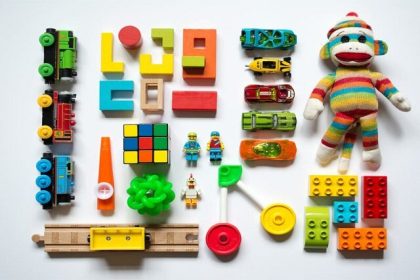01 April 1403 at 08:32
According to the head of Tehran spare parts union, 1403 will be a difficult year for supplying spare parts for Chinese cars. What are the challenges facing this industry?
After the ban on car imports and since 1997, we have seen the establishment of private car manufacturing and assembly companies that mainly sell Chinese products to the domestic market. The growing trend of assembly and the increase in the production lines of Chinese cars has created challenges for the industry of spare parts and essential parts of cars.
The challenge of supplying spare parts for Chinese cars in the new year
In the latest car news, we read that car spare parts are going to be 50% more expensive; Now there is a more serious problem for this industry! According to the opinion of the head of Tehran spare parts union, currently supplying Chinese car parts, both imported and assembled, is a big challenge for the auto spare parts industry. Among the reasons for the challenge of providing spare parts, we can mention the increase in the exchange rate and inflation and the fact that they are imported.
If there is no solution for this serious challenge and crisis in 1403, the coming year will become one of the most difficult years for the spare parts industry and will cause many problems for producers and consumers. Ahmad Hosseini, as the head of Tehran Spare Parts Union, says:
Due to the severe recession that the spare parts industry experienced this year, especially in the last months of the year, our colleagues were forced to increase the prices regardless of the increase in the price of raw materials and the increase in the exchange rate, in order to provide liquidity for their Shab Eid market. Offer former prices and even the final price. This was the biggest challenge faced by the spare parts industry in 1401.

Referring to the balance between supply and demand in the spare parts market, Hosseini stated that we are not currently facing a particular problem in supplying the market, but there are challenges in some Chinese cars. Looking at the history of car imports from China, we come to the conclusion that there is no commitment from those companies to solve the problems of spare parts and after-sales services, and all products come to the country and the domestic market without observing the basic principles.
The head of the spare parts union of Tehran stated that contracts in the field of car import or assembly are not organized and companies do not fulfill their obligations in some cases. The irresponsibility of the Chinese in many cases challenges the country's car market. In addition, unfortunately, the price of some of these spare parts is higher than the Japanese and European models, and all the pots and pans should be broken on Chinese companies. Hosseini also says:
Of course, this challenge of supplying parts is not only for imported Chinese cars, and there are also such problems in the supply and after-sales service of assembled products. There are several issues that, if the government and policy makers do not think of solutions to solve them, they will become the biggest challenges that we will definitely face in the new year. First of all, we have had an increase in the exchange rate. More than 80% of spare parts or raw materials of domestically produced parts are imported; Therefore, the increase in the exchange rate will definitely have a direct impact on the price of parts, and if the upward trend continues in the next year, it will have an impact again.
Ignoring the after-sales service market is the fault of the ministry of silence


The head of the spare parts union of Tehran considers the negligence of the minister of industry, mining and trade to be the second reason for the existence of challenges in the spare parts industry. According to him, since November of last year, the consultant of the Ministry of Silence has allocated all the Nimayi currency to car manufacturers and completely ignored the role of the after-sales service market.
However, if the market of after-sales service and spare parts, especially in Chinese cars, is ignored, the year 1403 will be more difficult than any other year. In his speech, Hosseini also mentioned the increase in customs tariffs and said:
In addition to these, the increase of some customs tariffs is also discussed; Unfortunately, this year, some customs tariffs increased from 5.5% to 51%. This unbridled increase in customs tariffs, without any legal and logical support and documentation, will have a significant impact on the price increase of parts.
As Mr. Hosseini has emphasized, perhaps it is possible to supply the Shab Eid bazaar with the goods in the colleagues' warehouses, but who should go to them after the end of their inventory? If this problem is not solved, the price of accessories and spare parts will increase and a serious challenge will arise for the spare parts dealers.
Why was the law not implemented correctly?


According to the head of the spare parts union of Tehran, inflation unfortunately remains like a cancer-like disease that affects all parts of the society. When inflation increases, the price of anything you can think of becomes more expensive, and auto parts are no exception. He continues:
When people's purchasing power decreases, the demand for cheaper parts will increase. what will happen? The demand for low-quality or sometimes low-quality parts will definitely increase. On the other hand, despite all the multi-billion expenses they put on the shoulders of the government and the private sector, they were unable to properly implement the law against smuggling of goods and currency regarding the identification of goods and the tracking code.
In the end, Ahmad Hosseini notes that not only do we not see transparency in today's market, but there are also low-quality and fake goods to your heart's content. Currently, the spare parts market is filled with fake and fake products that are sold from legal sources with ID and tracking code. Unfortunately, no one blames themselves in this case and they point the finger of blame at this and that!
RCO NEWS
















